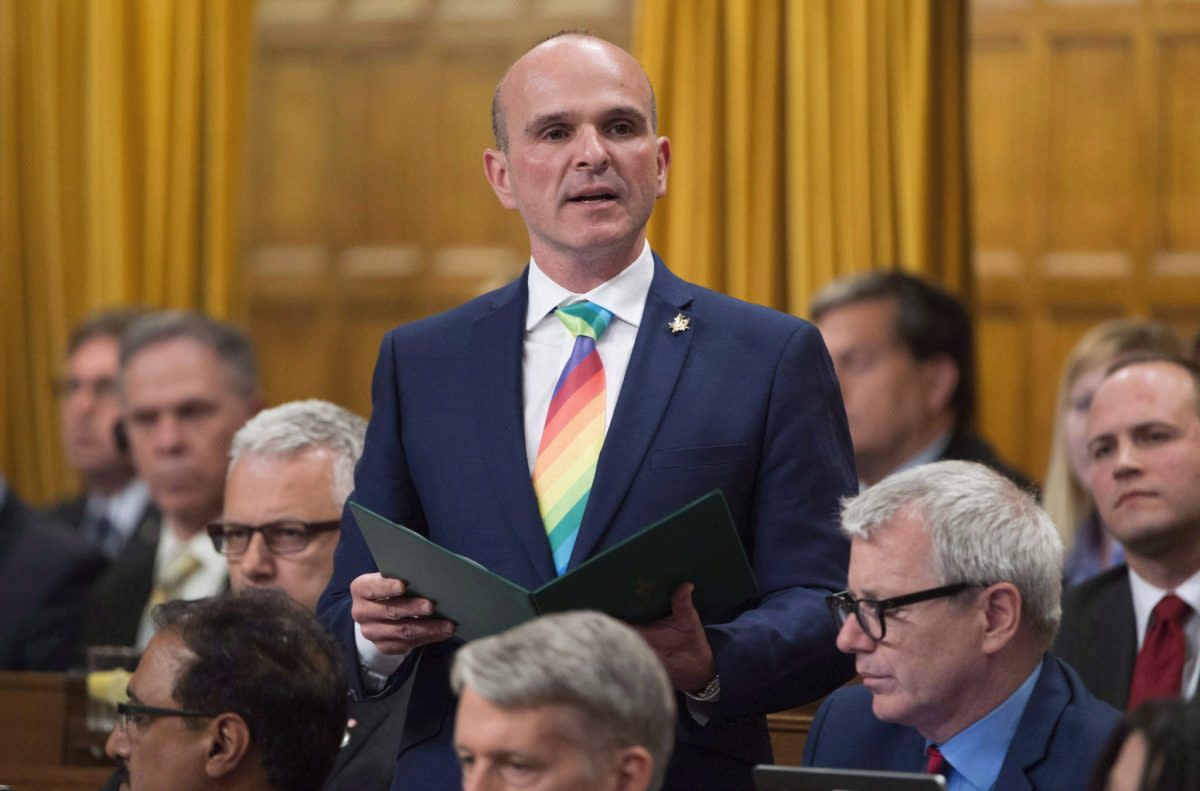Health advocate hopes for new data after Trudeau names LGBT special adviser

Rainbow Health Ontario’s director is applauding the Trudeau government’s appointment of a special adviser on LGBT issues, saying he hopes the move will result in more research and data about LGBT health.
Prime Minister Justin Trudeau announced Tuesday that Edmonton Centre Liberal MP Randy Boissonnault will be his special advisor on issues relating to the lesbian, gay, bisexual, transgender, queer or questioning and 2-spirit (LGBTQ2) community.
“I think it’s very exciting,” said Rainbow Health Ontario director Devon MacFarlane in an interview hours after the announcement.
“It’s great news that we have an LGBT adviser, given that there’s a range of inequities, both legal and health-related.”
Boissonnault will be advising Trudeau on the government’s agenda, including promoting the community’s rights and addressing “both historical and current” discrimination.
Along those lines, one immediate government priority is to repeal Canada’s ban on anal intercourse, section 159 of the Criminal Code. The government said it was acting on the recommendation made by Egale Canada Human Rights Trust in its “Just Society Report” released in June.
It is still illegal in Canada to engage in anal intercourse, unless it’s done by “husband and wife” or two consenting people over 18 years old, and done in private. The age of consent, however, is 16, and so the anal intercourse limit is seen as discriminatory. Canada has other laws about sex, like one concerning brothels, that the Egale report also wants repealed.
The Globe and Mail reports Boissonnault has also been tasked with crafting a public apology for historic discrimination against sexual minorities in Canada. The government promised in August that such an apology was in the works. But with no action taken, calls have been growing for a concrete plan to redress injustices, including a $600-million class-action lawsuit launched by former military members and civil servants dismissed fired for being gay.
Boissonnault, who identified himself as part of the LGBTQ2 community in remarks to the press following the announcement, has been described as Alberta’s first openly gay MP.
“Our top priority is to ensure that all Canadians are treated equally, and with respect; that we all can feel safe to be the best that we can be in this country that we all call home,” Boissonnault told reporters.
“It’s been nothing short of inspiring to be named special advisor to the prime minister on LGBTQ2 issues.”
Boissonnault is also the parliamentary secretary to the minister of Canadian Heritage, a role that the government said he will maintain, in addition to his new duties.
A 2015 rookie MP, he won the hotly-contested Edmonton Centre riding last year after running a consulting business and working as a journalist for CBC Radio-Canada and Les Affaires, among other roles.
Data needed on LGBT health: Ontario group
Rainbow Health Ontario, a provincial initiative of the Sherbourne Health Centre in Toronto, works to improve access to services and promote the health of LGBT people in Ontario, and also conducts research and policy work.
MacFarlane said there is not a lot of good Canadian data about LGBT health, and that the community has been relying in part on United States research, after the Obama administration increased its focus on the topic.
The differences are real: in Ontario, for example, 43 per cent of trans people have made at least one suicide attempt, and 10 per cent over the past year, compared to the population average of just 0.6 per cent, said MacFarlane.
Lesbian and bisexual women also have much lower rates of breast cancer and cervical cancer screening than straight women, and as such have higher mortality rates for treatable diseases.
MacFarlane said Boissonnault might want to start with consultations to get Rainbow Health Ontario’s perspective as well as other groups.
He also suggested taking a look at Statistics Canada and how it asks questions about sexual orientation in the census and in the Canadian Community Health Survey. It would be critical to get the same kinds of questions in different surveys and studies so that data can be compared and contrasted over time, he said.
The agency was criticized earlier this year after it asked people to choose their sex from among two options. Non-binary Canadians, or those who do not identify as being either male or female, were left wondering how to fill out the form. The agency said they could just leave the question blank.
MacFarlane also suggested a national strategy addressing a range of LGBT issues, with funding for research.



